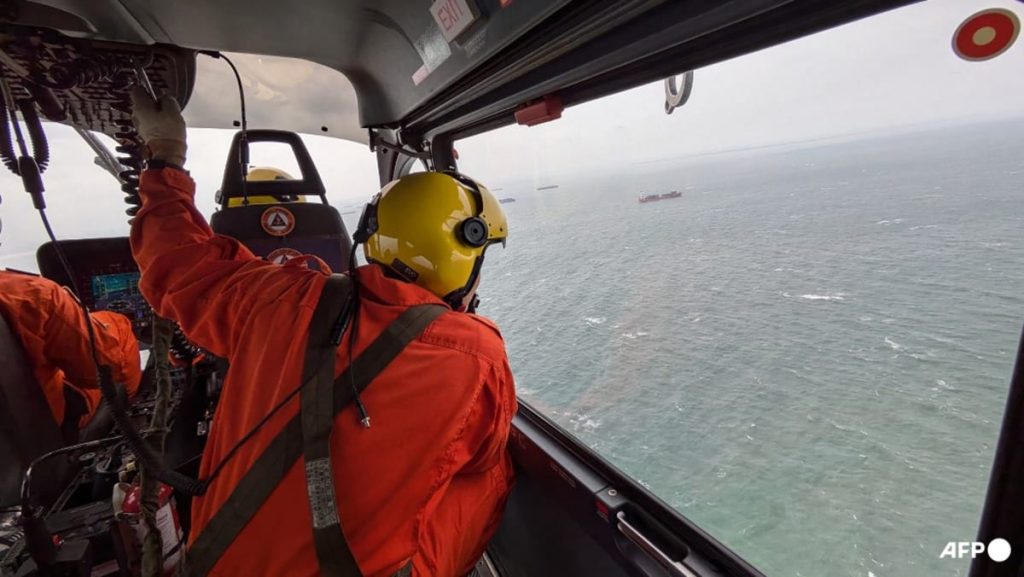A vessel sank nearly 7km from its origin in the port of Limay west of Manila while attempting to return to port after running into bad weather. The incident occurred as heavy rains fueled by Typhoon Gaemi and the seasonal monsoon lashed Manila and surrounding regions in recent days. Despite the difficult weather conditions, the state weather service reported that the monsoon had weakened by late Friday, giving authorities a window of relative calm at sea to recover the cargo. The coast guard estimates that the extraction process will take at least seven days, highlighting the challenges and complexities involved in handling such disasters.
The Philippines has had past struggles in containing serious oil spills, with incidents such as a tanker carrying 800,000 litres of industrial fuel oil sinking off the central island of Mindoro last year. This had led to contamination of waters and beaches, devastating the fishing and tourism industries in the area. It took months to clean up after the spill, underscoring the long-term consequences of such disasters on the local environment and economy. In 2006, another tanker sank off the central island of Guimaras, spilling tens of thousands of gallons of oil that destroyed a marine reserve, ruined local fishing grounds, and covered stretches of coastline in black sludge. These incidents serve as reminders of the importance of effective response and mitigation strategies in minimizing the impact of oil spills on marine ecosystems and coastal communities.
The sinking of the vessel near Manila also raises concerns about the potential environmental and economic consequences of the oil spill. The contamination of marine habitats and damage to local fishing grounds can have far-reaching effects on biodiversity and livelihoods in the affected areas. In the case of the recent incident, authorities are faced with the challenging task of containing and cleaning up the oil spill to prevent further harm to the environment and mitigate the impact on local communities. The seven-day extraction process is a race against time to limit the spread of oil and minimize the damage caused by the sinking of the vessel, highlighting the urgent need for coordinated efforts and resources to address such emergencies effectively.
The response to the sinking of the vessel near Manila requires close coordination between various agencies and stakeholders to ensure a timely and effective cleanup operation. The coast guard and other authorities will need to work together to assess the extent of the oil spill, develop a comprehensive response plan, and mobilize resources to contain and recover the spilled oil. Local communities and environmental organizations may also play a crucial role in supporting cleanup efforts and monitoring the long-term impact of the spill on marine ecosystems and coastal areas. The successful management of the oil spill will depend on the collective efforts of all involved parties, highlighting the importance of collaboration and cooperation in addressing environmental emergencies.
In conclusion, the sinking of the vessel near Manila and the resulting oil spill highlight the environmental and economic risks associated with maritime accidents in the region. The incidents of past oil spills in the Philippines underscore the long-lasting impact of such disasters on marine ecosystems, local livelihoods, and coastal communities. Effective response and mitigation strategies are essential in minimizing the environmental damage and economic losses caused by oil spills. The current extraction operation near Manila is a critical effort to contain and clean up the spilled oil, prevent further harm to the environment, and protect local communities from the consequences of the disaster. Collaborative efforts and coordinated action will be key in ensuring a successful cleanup and recovery process, emphasizing the importance of preparedness and response mechanisms in addressing maritime emergencies.


